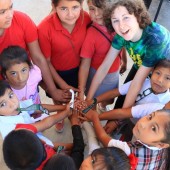
Imagine a world where people hold the highest standards for collaboration, understanding, and mutual respect. Imagine a world where people are engaged and hold a deep commitment to creating genuine, just, and mutually-empowering beneficial relationships. Imagine a world where people have the ability to connect across cultures, appreciate, and deeply listen to different perspectives, understand complex systems – and how we all fit into them – and together co-create solutions to the most daunting of global challenges. Imagine a community of people bringing forward energy and a sense of possibility, and stepping up to create the world we want to live in.
Continue Reading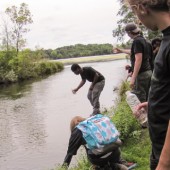
This case study describes an art-led environmental education project at an environmental charter high school in Minnesota. The project is a pilot of the model called Earth Systems Journey, and the theoretical approach of this model is summarized. Its goal is to provide experiential integration: a sense of self and place that are integrated with each other. The case study project, called “River Journey: Exploring the Value of the Mississippi River,” took place in the 2014-2015 school year with students in grades 9-12. River Journey takes students on a journey of their place in the local water cycle to discover how the water that flows through their school’s kitchen sink is interconnected, both upstream and downstream, to the Mississippi River through water and wastewater treatment and distribution infrastructure. Students create a GIS story map as a way to reflect on and integrate their learning and as a public educational resource. The idea of river exploration expands throughout the curriculum in the second half of the year, and another set of GIS story maps explore the river from the perspective of personal stories, population-water resource tensions, water as a strategic element in the Civil War, and ecological issues that occur along the length of the Mississippi River. Art and story inform the design of the journey and its dramatic props, including GIS, used throughout the experience.
Continue Reading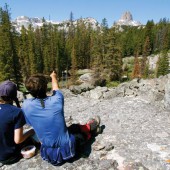
Minimum impact camping is a focus of most wilderness programs, but what example are we setting for our students before we get to the backcountry? In the past eight years NOLS has increased its focus on leading and teaching front-country sustainability by example, in addition to Leave No Trace practices taught in wilderness classrooms. This article explores some of the strategies, challenges, and successes in bringing sustainability to NOLS’ front-country operations.
Continue Reading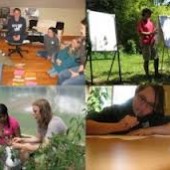
To live up to UNESCO’s definition of a sustainable development education that empowers youth with the knowledge, attitudes, motivations, commitments, and skills to solve and prevent the world’s total environmental problems, youth must be able to find meaning in the curriculum based in their own experiences and expanded through shared group experiences. An environmental-based experiential curriculum with a positive development focus can help youth reclaim their learning process and reconnect with their communities. However, without critical analysis, students, especially marginalized students, cannot develop the tools and competencies to truly understand their environment and their place within it. Linking environmental and experiential education with critical theory provides students the opportunity to develop their leadership and gain the social and cultural literacy skills needed to come in from the margins.
Continue Reading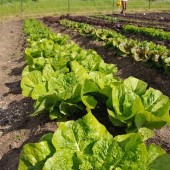
In an insightfully pragmatic way, John Gookin shows us how we can incorporate sustainability concepts into an innovative curriculum like that of NOLS without forcing the issue. He espouses the NOLS “organic” approach to curriculum design, where each taught element serves a real purpose, while finding great instances for including sustainability theory and practice.
Continue Reading